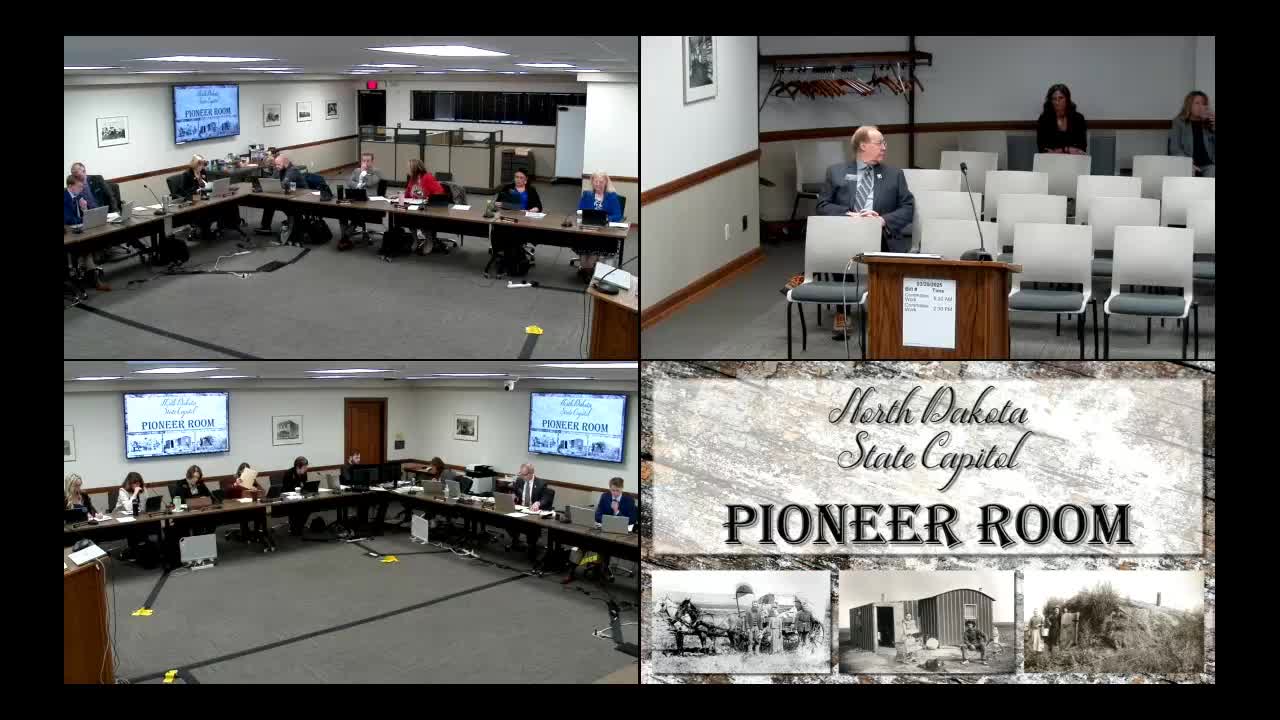Committee advances military-compatibility commission after split debate over duplication and information access
Get AI-powered insights, summaries, and transcripts
Subscribe
Summary
Lawmakers debated a bill creating a military compatibility commission that would advise communities near military installations. Supporters said it would improve communication; opponents said it duplicates existing local bodies and may have limited value if members lack access to necessary information.
The House Government and Veterans Affairs committee tentatively approved legislation on Wednesday to create a military compatibility commission intended to coordinate local government planning in military impact zones — but the measure drew sustained opposition from members who said it duplicates existing structures and could be ineffective if members lack access to the necessary military information.
Representative Vetter moved an amendment (labeled 4,002) that reshaped the bill’s membership; the amendment was adopted and the committee later approved a due-pass recommendation as amended. Under the revised language, the commission would include the agriculture commissioner or a designee, local-government representatives (on a volunteer basis) and an optional slot for the commander of each nearby military installation or the commander's designee.
Why it matters: The measure is aimed at improving communication between communities and military installations and to provide guidance on military compatibility practices in identified impact zones. Members noted the bill would put a statutory structure around a coordination role that some communities now handle informally.
Points from committee testimony and debate - Supporters argued the commission would open formal channels of communication and could have prevented earlier problems in communities that experienced disputes relating to military-adjacent development.
- Opponents repeatedly said the bill duplicates existing relationships and that local zoning boards and existing military liaisons can address compatibility concerns. Representative Steiner said she would “resist this because we heard from a, retired general that there is a, military North Dakota Military Commission exists already,” adding that “the best practice is to put the military on the zoning boards.” Representative Wolff said he also opposed the measure and worried members “won’t have the classification to be able to to get some of the information they need from the air force base.”
- Several members noted the bill’s membership is voluntary for local jurisdictions and installation commanders, and supporters said voluntary participation reduces the risk of an overreaching state mandate.
Committee action and outcome - Amendment 4,002 (membership and language changes including insertion of the ag commissioner/designee) was moved by Representative Vetter and seconded by Representative McLeod; the amendment passed by voice vote. - The committee ultimately approved a due-pass recommendation as amended after a tied vote and a renewed motion; final roll-call tally recorded 9 yes, 5 no, 0 abstain.
Next steps: The bill will proceed to the next committee (clerk recorded final passage in committee) where appropriations, fiscal impact and any additional drafting concerns can be considered. Several members requested additional briefings or invited sponsors to return with clarifications about access to classified or sensitive military information if needed.
